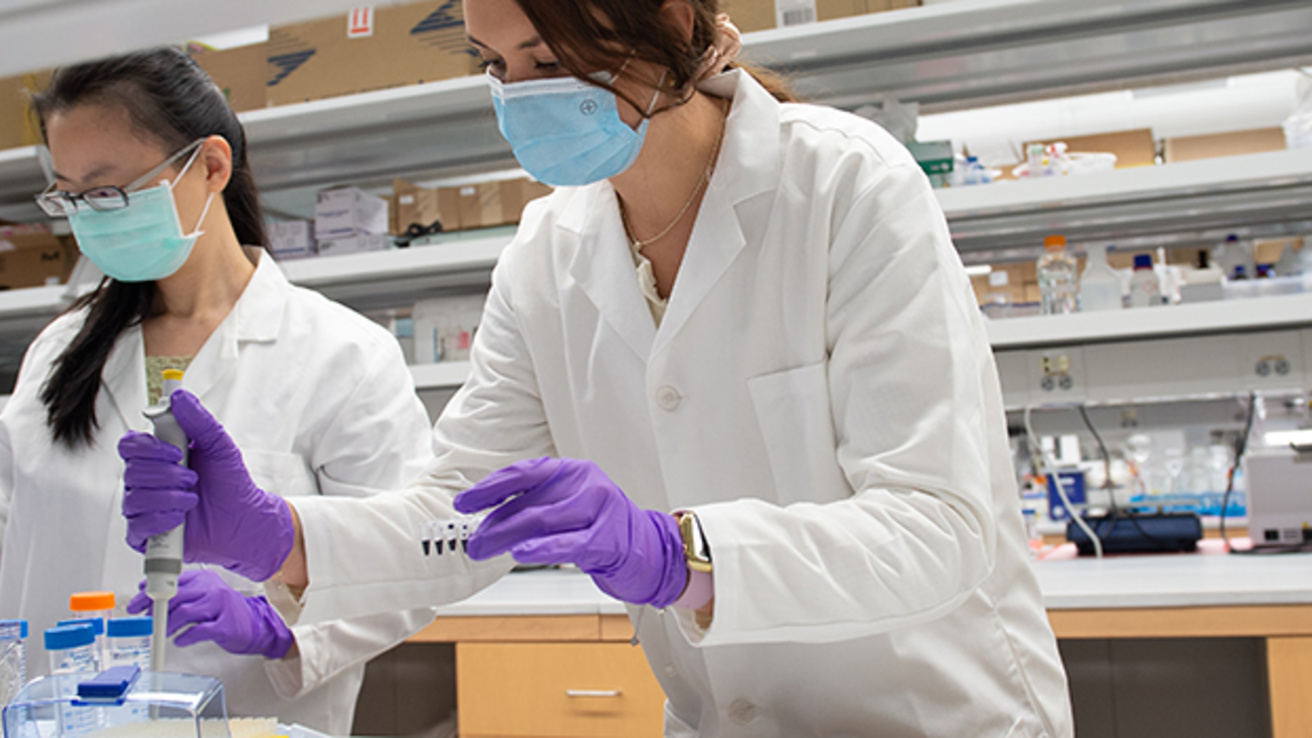Breadcrumb
BioBank services
Iowa Brain Bank/BioBank Services:
The Core offers complex human brain banking services from sample receipt, processing, to sample storage and distribution. Biospecimen collections can be managed all the way from receipt to processing and storage, or one-off services can be ordered. Customized processing services are available for project specific requirements.
Core staff on-call for autopsy coordination and receipt of specimens:
- Core staff pick up at collection point on campus
- Delivery to Iowa NeuroBank Core by courier
Primary Sample processing services:
- Fixed and frozen tissue processing
- Blood fraction aliquots, plasma, and serum
- Snap-frozen, OCT or formalin-fixed tissue samples
Primary cell lines isolation services:
- human fibroblast isolation, expansion, cryopreservation, and freezing from skin biopsy
- freezing of cell pellets for future RNA and DNA isolation
- thawing & expansion of frozen cells
- freezer racks and LN2 storage
Histology services:
- Cryosectioning
- FFPE sectioning
- Unstained slides or sections from formalin-fixed paraffin-embedded (FFPE) or frozen blocks
- Hematoxylin and eosin (H&E) stain
- Nissl stain
- Whole-slide imaging
DNA/RNA/Protein extraction services:
- Qiagen blood kits
- Qiagen RNeasy kits
- Qiagen EpiTect DNA Bisulfite kits
- Macherey-Nagel NucleoSpin RNA Kits
- Customised service for different sample types
Sample dispatch and shipping services:
- Special tissue collection request
- Blood
- DNA, RNA, and Protein extractions
- Tissue-derived fibroblasts
- Patient-derived iPSCs
All samples processed by Iowa NeuroBank Core are tracked and transferred to our inventory-managed storage space equipped for a range of storage temperatures. All -80C freezers and LN2 cryotanks have 24hr temperature monitoring and alarm response. Controlled ambient for FFPE blocks and histology slides.
- Sample retrieval from the Iowa NeuroBank Core
- Coordination of dispatch to approved research projects
- Coordination and booking for local and international sample shipments
1) Indicate whether you or your direct collaborators have used the method(s) proposed in this request with human postmortem tissue before, and any preliminary data.
2) If you have not performed a pilot study in human tissue, your first request should be an optimization and feasibility study to test a human tissue sample with your proposed methods.
3) If you are not sure precisely what tissue, tissue regions, or quantities are best for your research project, please schedule a consultation meeting before completing the tissue request.
4) The Tissue Request Form requires you to provide a detailed rationale for the number of subjects requested, the amount of tissue requested per subject, and the number of brain regions requested.
5) Funding resources: Although individuals or next-of-kin freely donate all tissues for research use, a sophisticated infrastructure is necessary to match samples with researchers and to procure, process, and prepare the shipping of these precious samples. Service fees are necessary to support this infrastructure.
Please follow the Acceptable Tissue Amount Guidelines when submitting your request.
- qPCR ≤ 5mg
- Bulk RNASeq: gray or white matter ≤ 60mg
- Single-cell RNAseq: ≤ 100mg
- Slide-Based Assays (e.g., in situ hybridization, laser-capture microdissection): ≤ 6 sections per condition
- FACS sorting with NeuN: ≤ 100mg of gray matter
- HITS-CLIP: ≤ 300mg
- Immunoblot: ≤ 10mg of tissue per protein examined
- Immunohistochemistry: Sufficient tissue for ≤ 6 sections for immunolabeling
- Mass Spec:
- Simple Mass Spec with no enrichment or multidimensional fractionation: ≤ 15mg
- Mass Spec with sucrose density gradient based sub-cellular enrichment: ≤ 350mg
- Mass Spec with multidimensional separation with or without isobaric labeling tags (eg., TMT or iTRAQ): ≤ 150mg
- Co-IP with Mass Spec: 50 – 500mg
- Mass Spec for post-translational modifications: 50 – 500mg
To become a validated specimen user, please submit your request for sample collection and preparation, documentation, grant support, and strategic partnering opportunities. Please contact us (li-chun-lin@uiowa.edu) about the process for requesting samples and the catalog systems. The researchers can submit the request form and research agreement for any tissue or service requests. Once these two forms have been submitted, we will review the information and contact the investigator(s) for next steps. These steps include:
-
Investigator contacts the NeuroBank for Core orientation and project overview
-
Investigator completes the forms to initiate a project.
-
The “Title of Research Plan” will appear at the top of your MTA.
-
Reviews forms
-
NeuroBank completes MTA if necessary
-
Distribute the samples
-
Investigators returns the associated publications
